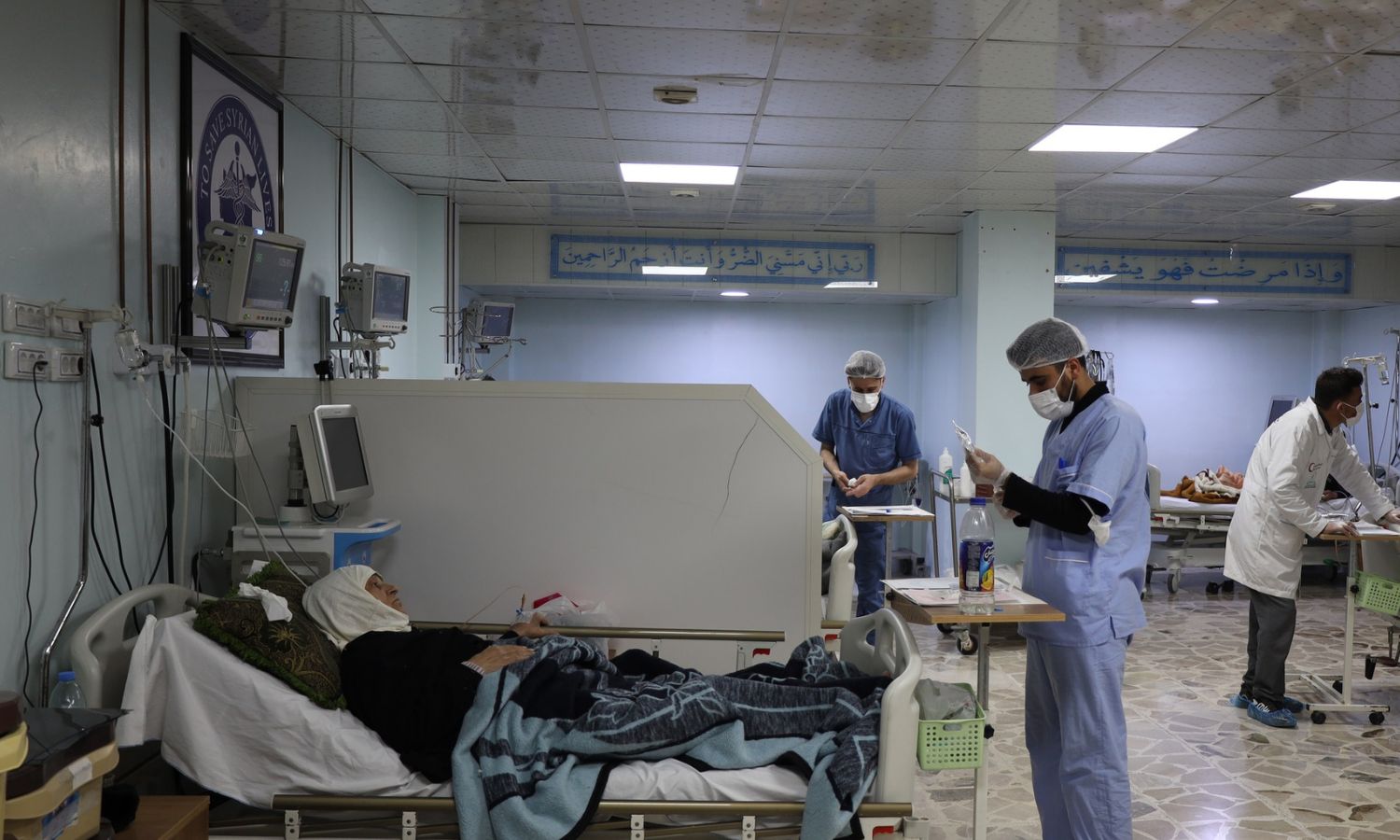



Idlib – Anas al-Khouli
The suffering of kidney patients in Idlib city increases due to the difficulty of reaching dialysis centers, resulting from the closure of some centers and the necessity for patients to travel relatively long distances. Limited solutions remain insufficient compared to the magnitude of their suffering.
Mrs. Wafa Obaid (45 years old) suffers from difficulty reaching the dialysis center and the high transportation fees. She is a displaced person residing in Killi, north of Idlib, and developed crush syndrome after the earthquake in February 2023, which led to acute kidney failure.
Mrs. Obaid told Enab Baladi that the nearest dialysis center is 17 kilometers away and she needs to go to the center twice a week. The car fare for each trip costs 250 Turkish liras ($7.5).
She mentioned that the amount equals two and a half days of her husband’s work wage, noting that the exhausting transportation costs led her to miss some sessions due to the inability to afford the expenses.
Saeed Jaber (52 years old) suffers from the same problem; he has kidney failure, and the nearest center is about ten kilometers away from his home in Ram Hamdan.
He told Enab Baladi that his son takes him to the center by motorcycle, but he suffers from fatigue, exhaustion, and fear of falling, not to mention the transportation difficulties during winter with severe cold and heavy rains.
Some organizations and volunteer teams provide transportation services to a number of patients within the available means, but the problem remains unsolved for many other patients.
This service helped Wafa Obaid, who mentioned that she got acquainted with a women’s medical point affiliated with the Syria Civil Defence during her presence at the dialysis center. This helped her overcome the transportation problem, as volunteers from the Civil Defence transport her by ambulance to and from the center, alleviating some of her costs.
The health programs coordinator at the Syria Civil Defence, Othman al-Omar, told Enab Baladi that the Civil Defence provides transportation services to over 450 kidney patients, more than half of the kidney patients in the region, spanning a wide geographical area from western rural Idlib to eastern rural Aleppo.
Al-Omar mentioned that the number of kidney patients increased significantly after the devastating earthquake, with a growing need for transportation services. Some patients missed center visits for dialysis sessions due to the lack of transportation means.
He added that the suspension of some dialysis centers and some organizations working in patient transportation due to halted support burdened the Civil Defence further, necessitating an increase in the number of workers and vehicles assigned to transport patients.
According to al-Omar, the number of transport operations conducted by the Civil Defence monthly exceeds 4000, noting that each patient differs in the number of weekly sessions required.
Hospitals and dialysis centers in northwestern Syria suffer from severe equipment shortages due to a lack of support, resulting in some shutdowns, while remaining centers face ongoing threats.
The earthquake increased kidney failure cases because dozens suffered from crush syndrome due to muscle cell destruction in limbs or other body parts by external compressive force.
A secondary care official in the Idlib Health Directorate, Basil Sabbagh, told Enab Baladi that the number of chronic kidney disease patients in Idlib and parts of western rural Aleppo is 900.
He mentioned that patients regularly visit 10 dialysis centers, which have only 115 dialysis machines, distributed in Idlib province and parts of rural Aleppo.
Sabbagh added that the healthcare system in northwestern Syria faces difficulties securing medical supplies that should be routinely available in every health center to complete care during and after dialysis sessions, facing shortages in essential medications and medical consumables.
The issue applies to most patients regardless of the illness, as international support cuts for health facilities in northern Syria threaten the health and lives of tens of thousands of patients.
Northwestern Syria is home to 5.1 million people, 4.2 million of whom need assistance, and 3.4 million suffer from food insecurity. Out of these, 3.4 million are internally displaced, and two million live in camps, according to the United Nations. Local statistics estimate the population at 5.5 to 6 million people.
if you think the article contain wrong information or you have additional details Send Correction